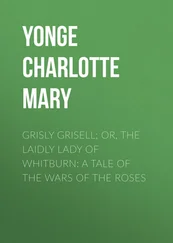John Edgar - The Wars of the Roses
Здесь есть возможность читать онлайн «John Edgar - The Wars of the Roses» — ознакомительный отрывок электронной книги совершенно бесплатно, а после прочтения отрывка купить полную версию. В некоторых случаях можно слушать аудио, скачать через торрент в формате fb2 и присутствует краткое содержание. Жанр: foreign_antique, foreign_prose, на английском языке. Описание произведения, (предисловие) а так же отзывы посетителей доступны на портале библиотеки ЛибКат.
- Название:The Wars of the Roses
- Автор:
- Жанр:
- Год:неизвестен
- ISBN:нет данных
- Рейтинг книги:3 / 5. Голосов: 1
-
Избранное:Добавить в избранное
- Отзывы:
-
Ваша оценка:
- 60
- 1
- 2
- 3
- 4
- 5
The Wars of the Roses: краткое содержание, описание и аннотация
Предлагаем к чтению аннотацию, описание, краткое содержание или предисловие (зависит от того, что написал сам автор книги «The Wars of the Roses»). Если вы не нашли необходимую информацию о книге — напишите в комментариях, мы постараемся отыскать её.
The Wars of the Roses — читать онлайн ознакомительный отрывок
Ниже представлен текст книги, разбитый по страницам. Система сохранения места последней прочитанной страницы, позволяет с удобством читать онлайн бесплатно книгу «The Wars of the Roses», без необходимости каждый раз заново искать на чём Вы остановились. Поставьте закладку, и сможете в любой момент перейти на страницу, на которой закончили чтение.
Интервал:
Закладка:
The queen was not less willing than the earl to try conclusions. Believing the Lancastrians equal to an encounter with the army of Warwick, she addressed her partisans, and encouraged them with promises of honors and rewards. Confident in their strength, she ordered them to cross the Nene; and, Lord Grey de Ruthin leading the van, the royal army passed through the river, and encamped hard by the Abbey of Delapré in the meadows to the south of the town. There the Lancastrians encompassed themselves with high banks and deep trenches; and, having fortified their position with piles, and sharp stakes, and artillery, they awaited the approach of the Yorkist foe.
Warwick was not the man to keep his enemies long waiting under such circumstances. After charging his soldiers to strike down every knight and noble, but to spare the common men, he prepared for the encounter; and, ere the morning of the 9th of July – it was gloomy and wet – dawned on the towers and turrets of the ancient town on the winding Nene, his army was in motion. Setting their faces northward, the Yorkists passed the cross erected two centuries earlier in memory of Eleanor of Castile, and in feudal array advanced upon the foe – "The Stout Earl" towering in front, and Edward of March, York's youthful heir, following with his father's banner. 5 5 "At that period, the men-at-arms, or heavy cavalry, went to battle in complete armor; each man carried a lance, sword, dagger, and occasionally a mace or battle-axe; his horse, also, was, to a certain extent, in armor. A considerable part of an English army consisted of archers, armed with long bows and arrows; and another part consisted of men armed with bills, pikes, pole-axes, glaives, and morris-pikes." — Brooke's Visits to Fields of Battle.
At news of Warwick's approach, the Lancastrian chiefs aroused themselves to activity, donned their mail, mounted their steeds, set their men in battle order, and then alighted to fight on foot. The king, in his tent, awaited the issue of the conflict; but Margaret of Anjou repaired to an elevated situation, and thither carried her son, to witness the fight. Her hopes were doubtless high, for gallant looked the army that was to do battle in her cause, and well provided were the Lancastrians with the artillery which had, in the previous autumn, rendered the Yorkists so formidable at Ludlow.
By seven o'clock the Yorkists assailed the intrenched camp at Delapré, and the war-cries of the Lancastrian leaders answered the shouts of Warwick and March. At first the contest was vigorously maintained; but, unfortunately for the queen's hopes, the rain had rendered the artillery incapable of doing the service that had been anticipated. In spite of this disheartening circumstance, the warriors of the Red Rose bravely met their antagonists, and both Yorkists and Lancastrians fought desperately and well. But, in the heat of action, Lord Grey de Ruthin, betraying his trust, deserted to the enemy. Consternation thereupon fell upon the king's army, and the Yorkists having, with the aid of Lord Grey's soldiers, got within the intrenchments, wrought fearful havoc. The conflict was, nevertheless, maintained with obstinacy till nine o'clock; but after two hours of hard fighting the king's men were seen flying in all directions, and many, while attempting to cross the Nene, were drowned in its waters.
In consequence of Warwick's order to spare the commons, the slaughter fell chiefly on the knights and nobles. The Duke of Buckingham, the Earl of Shrewsbury, Thomas Percy, Lord Egremont, and John, Viscount Beaumont, were among the slain. Somerset narrowly escaped, and fled after the queen in the direction of North Wales.
When intelligence of Warwick's victory reached London, the populace broke loose from all restraint. Lord Scales, who, while keeping the Tower, had incurred their hatred, disguised himself and endeavored to escape. The watermen, however, recognized him, and, notwithstanding his threescore years, cut off his head and cast the body carelessly on the sands. Thomas Thorpe, one of the barons of the Exchequer, met a similar fate. While attempting to fly, he was captured and committed to the Tower; but afterward he was taken possession of by the mob, and executed at Highgate. With such scenes enacting before their eyes, the citizens recognized the necessity of a settled government; and the adherents of the White Rose intimated to their chief the expediency of his immediate return from Ireland.
King Henry, after the defeat of his adherents at Northampton, was found in his tent, lamenting the slaughter. As at St. Albans, he was treated by the victors with respectful compassion, and by them conducted, with the utmost deference, to London.
CHAPTER XI
YORK'S CLAIM TO THE CROWN
On the 7th of October, 1460, a Parliament, summoned in King Henry's name, met at Westminster, in the Painted Chamber, for centuries regarded with veneration as the place where St. Edward had breathed his last, and with admiration on account of the pictures representing incidents of the Confessor's life and canonization, executed by command of the third Henry to adorn the walls.
On this occasion the king sat in the chair of state; and Warwick's brother, George Neville, Bishop of Exeter, who, though not yet thirty, had been appointed chancellor, opened the proceedings with a notable declamation, taking for his text, Congregate populum, sanctificate ecclesiam . The Houses then entered upon business, repealed all the acts passed at Coventry, and declared that the Parliament there held had not been duly elected.
While this was going on, the Duke of York, who had landed at Chester, came toward London; and three days after the meeting of Parliament, accompanied by a splendid retinue, all armed and mounted, he entered the capital with banners flying, trumpets sounding, and a naked sword carried before him. Riding along with princely dignity, the duke dismounted at Westminster, and proceeded to the House of Lords. Walking straight to the throne, he laid his hand on the cloth of gold, and, pausing, looked round, as if to read the sentiments of the peers in the faces. At that moment the Archbishop of Canterbury, who had been with Henry, entered the house, and made the usual reverence to the duke.
"Will not my Lord of York go and pay his respects to the king?" asked the archbishop.
"I know no one," answered York, coloring, "to whom I owe that title."
The archbishop, on hearing the duke's answer, went back to the king; and York, following, took possession of the palace. Then, returning to the house, and standing on the steps of the throne, he claimed the crown of England as heir of Lionel of Clarence. When the duke concluded his speech, the peers sat motionless as graven images; and perceiving that not a word was uttered nor a whisper exchanged, York sharply asked them to deliberate. "Think of this matter, my lords," said he; "I have taken my course, take yours."
The duke left the house in some chagrin, and the peers took his request into consideration. After discussing the claim to the crown as calmly as if it had been an ordinary peerage case, they resolved that the question should be argued by counsel at the bar.
Most of the lords were under essential obligations to the house of Lancaster, and therefore in no haste to take York's claim into consideration. When a week elapsed, therefore, the duke deemed it politic to send a formal demand of the crown, and to request an immediate answer. The peers, somewhat startled, replied that they refused justice to no man, but in this case could decide nothing without the advice and consent of the king. Henry was consulted; and he recommended that the judges should be summoned to give their opinion. These legal functionaries, however, declined to meddle with a matter so dangerous, and the peers were under the necessity of proceeding without the aid of their learning and experience. The duke was then heard by his counsel; and, an order having been made "that every man might freely and indifferently speak his mind without fear of impeachment," the question was debated several days.
Читать дальшеИнтервал:
Закладка:
Похожие книги на «The Wars of the Roses»
Представляем Вашему вниманию похожие книги на «The Wars of the Roses» списком для выбора. Мы отобрали схожую по названию и смыслу литературу в надежде предоставить читателям больше вариантов отыскать новые, интересные, ещё непрочитанные произведения.
Обсуждение, отзывы о книге «The Wars of the Roses» и просто собственные мнения читателей. Оставьте ваши комментарии, напишите, что Вы думаете о произведении, его смысле или главных героях. Укажите что конкретно понравилось, а что нет, и почему Вы так считаете.












